For a few years now, I’ve been relatively public about my depression. It’s something I’ve tweeted about, something I’ve written about, and even made a podcast about. In the few years I’ve been doing it, it’s been heartening to see more and more people talking openly about this aspect of their lives. Slowly but surely, the public discourse around mental health is changing.
However, it is clearly still a problem. One in four people in the world will be affected by mental or neurological disorders at some point in their lives. Over 800,000 people die by suicide annually, representing 1 person every 40 seconds, and suicide is the leading cause of death in people aged 15-24 in many European countries.
As I'm writing this, today is World Suicide Prevention Day, and I’m hopeful that the internet will be full of well-written articles about various aspects of mental health, and how we can protect ourselves and our friends from the worst of it. So, I thought I’d add my own article to the pile, with an Etch Play twist.
Some depressed people, myself included, spend a lot of time looking at screens. Usually we think of this as a negative – the perils of social media, the addictions that our phones allow us to feed, and all the other bad stuff on the internet. And a lot of that is true! I don’t want to discount it. But, it’s not all bad. Today I wanted to take a look at how one thing we look at on our screens, videogames, can be really helpful to people with mental health issues.
Now, before we go further: I have to caveat that this is not professional advice, and if you’re suffering from a mental health condition, you should talk to your GP, or an accredited therapist. I’ll also put some helpful numbers and links down at the bottom of the article which you can use if you need to talk to someone.
So, with that out of the way, let’s get into it. Some of the ways in which games can help us with our mental well-being are obvious, when you think about it. They make sense, in a pop psychology kind of way. And other ways are slightly more difficult to understand but are backed by research. Let’s start with one of those.
Action and distraction
In a study called "Fighting Depression", one of several forays into the impact of videogames, researchers found that action games specifically helped curb rumination, and that this could contribute to a reduction in symptoms of depression. Rumination is when you dwell on things, and in depressed people periods of rumination can be really harmful. This study actually surprised me, because I expected fast-paced games to potentially be frustrating or even cause anxiousness, but it seems that for the majority of people these kinds of games can have a positive impact.
It ties in nicely to one recurring theme about the value of videogames: Sometimes we all just need to be distracted, even if it's being distracted by something which could be stressful. The types of games come in many forms, but consider something as all-encompassing as Bethesda’s Skyrim, which is a fantasy world large enough to get lost in. Having that experience available to you at the push of a button can be really valuable to some people, who need to take some time to get away from the day to day.
“Sometimes we all just need to be distracted.”
Control
Another way that videogames make us feel empowered is to give us a sense of control. This can be thrilling, but has an added benefit for people struggling with a mental health condition: Sometimes, our lives aren’t going the way we want. Try as we might, not everything in the real world is under our control, and this can be a discomforting thought. Then, in the world of videogames, you have something like Minecraft.
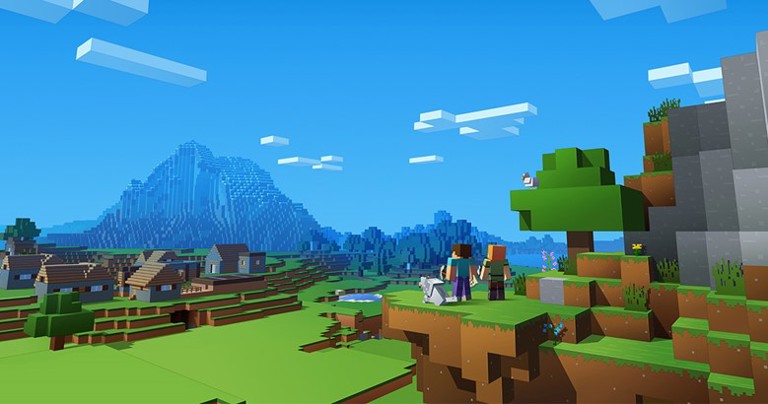
“Not everything in the real world is under our control...”
The game isn’t something that you necessarily have complete control over, but the entire game is built around the idea of creating the world that you want. Placing blocks where you want them to be, arranging them to your liking, and carving out something. Depending on what mode you’re playing, there’s challenge here too, but feeling like you can shape the entire world with your bare-hands is the exact fantasy that Minecraft trades on, and sometimes a bit of control is what we feel like we need.
Motivation
Videogames also, typically, present us with challenges. These range from infuriatingly difficult, to relaxing, peaceful goals. And yep, you guessed it: These help too.
When you’re in therapy, one of the things you’ll likely be encouraged to do is try to set sensible, achievable goals. Even things like making your bed, which can feel hugely difficult to someone who is suffering. Accomplishing the little things has two effects:
- Some things actually get done, an overall net gain for your life, or at least your to do list
- You start to feel empowered by your success, and able to take on bigger challenges
That exact logic applies to videogames too. Studies have shown that what’s known as a “gameful” mindset helps us to feel motivated and resilient in the face of those little everyday challenges, like getting out of bed, meeting friends in public, and staying active.
“... Those little everyday challenges...”
There are loads of games that fit this mold, from little puzzlers on your phone to charming indie exploration games like A Short Hike.
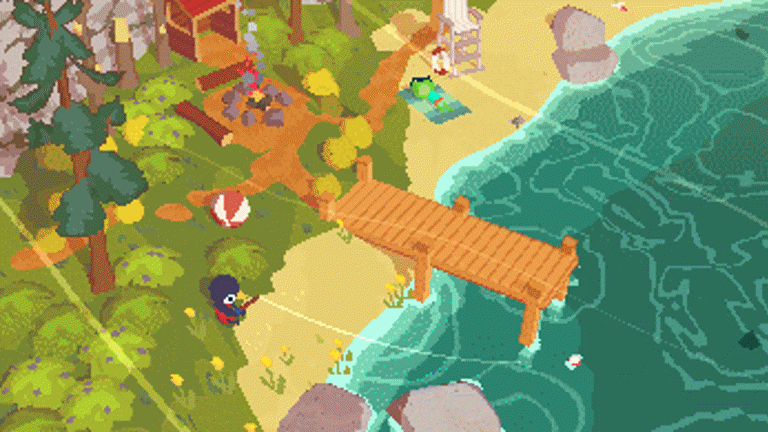
Reducing Stress
The kind of games that set these easy challenges are doubly beneficial because they also offer us a break. We all sometimes need to take time off, and life can be hectic. Anything which can offer you a half an hour of solace in an otherwise stressful day is something to hold onto. Games like Animal Crossing and Stardew Valley have optional challenges, and the fact that they are completely optional helps the game remain stress-free. When the world outside gets a little too crazy (and let’s face it, that seems to be happening a lot!) tending to a virtual farm where nothing else matters might be exactly what you need.
“Life can be hectic.”
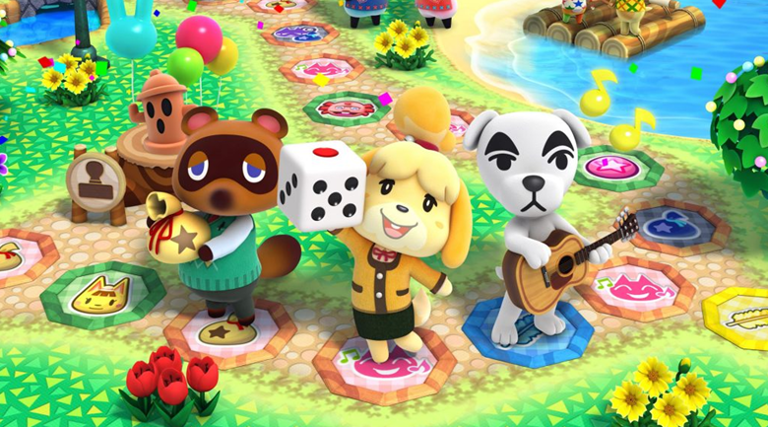
Companionship
Of course, games can also be multiplayer. And for people who may struggle to maintain friendships, or meet people in the real world, these games can offer incredibly useful assistance. Whether it's trying to beat your friends at Super Smash Bros on the sofa, teaming up with your pals in Overwatch online, or just exploring a world together, keeping in touch with your friends can make a huge difference to your well-being. Just don't take it too seriously when you lose!
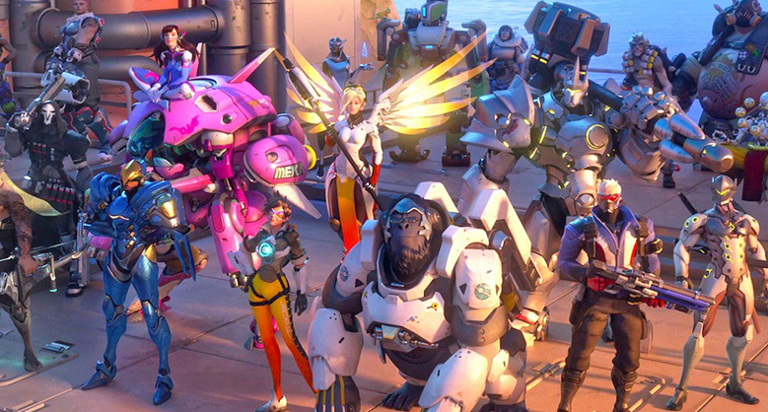
“Keeping in touch with friends can make a huge difference to your well-being…”
Identity
One aspect of mental health that we’ve made real progress on in recent years is reducing the stigma, and letting people know that they are not alone – highlighting just how common these issues really are. Whether it’s your mates or your favourite celebrity, having people talk openly and honestly about their experiences can help to address one of the worst aspects of having a condition: Feeling like nobody else could possibly understand.
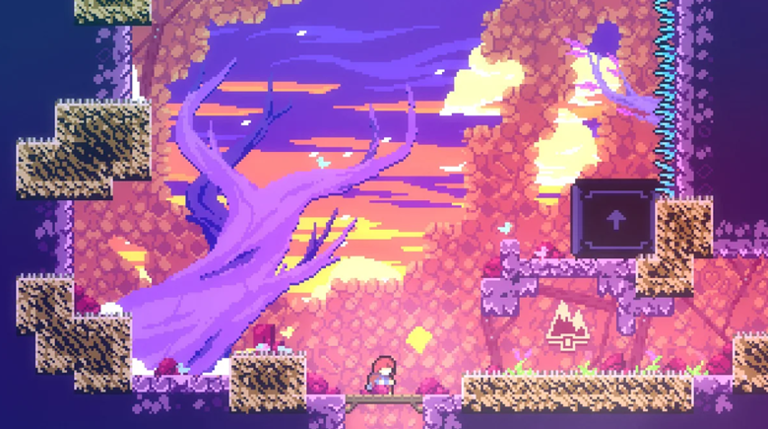
It’s another area where games, particularly independent games, are able to offer real comfort. There’s a rising ride of titles coming out which are directly about mental health, albeit usually in a metaphorical context. Games like Elude and Celeste are made by people who understand depression, mainly from personal experience, and the game mechanics and storylines revolve around these very concepts. To players, the message is clear: You are not alone.
“To players, the message is clear: You are not alone.”
This market is growing, too. Hellblade: Senua's Sacrifice, put together and published by Ninja Theory, has all the sensibilities of a triple-A, big-budget title, and still found room for this nuance. They worked with mental health experts and real sufferers to build an accurate portrayal of psychosis in the game, alongside the hack-and-slash action, and sold over a million copies. Some of the biggest publishers in the world are now listening. Electronic Arts, a publisher who traditionally focuses on sports and action games, and regularly turns over billions of dollars a year, launched Sea of Solitude this July through their EA Originals program. The game allows players explore themes of loneliness, sadness and fear by navigating a sunken city inhabited by metaphorical monsters.
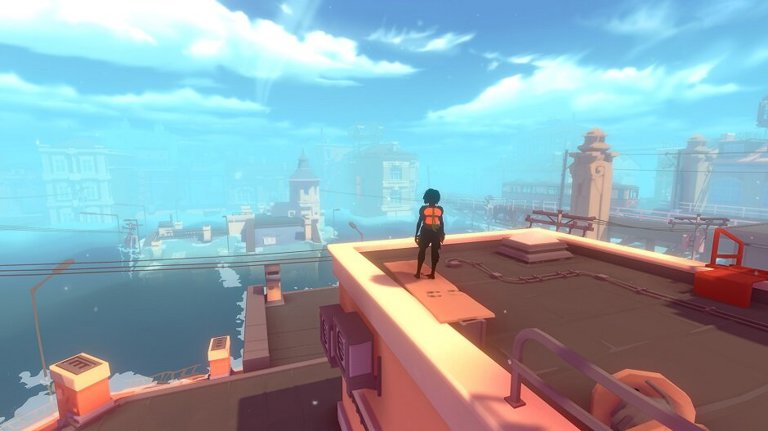
Designed to help
Some developers and designers have even begun taking this to the next level: games explicitly designed to help you manage a mental health condition. Owen Harris and his team have put together Deep, a meditative virtual reality experience which is scientifically designed to help people with anxiety. Other companies, like Orpheus Self Care, are start-ups entirely founded on the premise of creating experiences which help players practice mindfulness, a useful tool in combating a range of mental health ailments.
Etch Play’s own Dan Thomas has recently become an Ambassador for Autistica, who are exploring ways that the games industry can be more supportive of people with autism. Mental health issues such as OCD are more common in autistic people. As neurodivergent representation grows within the studios and workplaces, our games have more chances to become more representative of the different mindsets we all have, and the different challenges we may face.
The challenges we face
At the start of Journey, thatgamecompany’s beautiful and critically adored adventure game, your character awakens stranded in a desert. In the distance, there is a mountain to climb. Between there, and here, are a number of obstacles. You can make it on your own, but companions will appear along the way to help guide you.

“In the distance, there is a mountain…”
That is the story of a videogame. Several videogames in this article alone have the same basic premise. But it can also be the story of our lives. It can even be the story of our entire society, pushing forward towards our goal: The top of the mountain where everyone can take a break, de-stress, feel seen and heard, accomplish their goals, and generally, feel more content about their life.
That mountain is getting closer. Let’s keep walking.
Please be wary about self-medicating – if you think you may be affected by a mental health condition, seek professional advice.
Discuss your feelings with a GP (UK)
Find an accredited therapist (UK)
Organisations who can offer support in the UK include Samaritans (available on 116 123) or Mind (available on 0300 123 3393). Readers in the US are encouraged to visit mentalhealth.gov.


